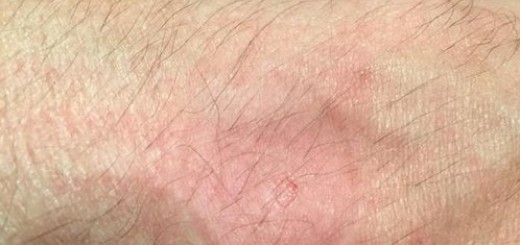Dr. Oz is wrong again! Coffee drinkers unite: coffee doesn’t cause reflux.

Sometimes my patients befuddle me. One example: a patient has a simple medical problem, and all they have to do is take a pill a day, or change their diet a tiny bit, and…voilà they would be all better. It’s like magic, except it is real. But, instead patients come to me a month later and are worse, sometimes worse to the point of needing hospitalization. They ask why they keep getting worse, and when I ask them if they are taking their meds or changing their diet, they just look at me like I am speaking a foreign language, and say “no, it’s too hard to do that.”
These patients used to drive me nuts. Then I turned the ripe age of 29 and things started to fall apart and I became a patient and I realized it WAS hard! Literally overnight I started to get reflux. (Gastroesophageal reflux, GERD, is when some of your stomach contents come back up due to a loose sphincter/muscle where the esophagus meets the stomach. Sometimes stomach contents come up a little and your stomach contents are really acidic and it burns in your chest (“heartburn”), sometimes they come up a little higher and it just feels like you have something in the back of your throat, and sometimes they come up a lot and you get that feeling of vomiting in the back of your mouth.). I wasn’t alone in this problem: a whopping 44% of all Americans suffer reflux at least once a month. The initial solution was simple: no more of the stuff that gives you reflux. Examples include coffee, alcohol, spicy foods, fatty foods, peppermint, and chocolate. Dr. Oz has very clear advice about this: see his unfounded advice here. Are you kidding me? These are the best things in life! The only thing missing from that list is sex. Add sex to the list of things you must avoid and I think life as a nun might be less restrictive than one with reflux. (Henry says I should point out I mean no offense to nuns, I am being sarcastic.)
After a recent New York Times article on the amazing benefits of coffee, this article my friend and colleague Emergency Physician Dr. Michael Miller sent me by Shimamoto et al made me more excited than the last Game of Thrones season premiere. But is it true?
This was a study of 2,164 Japanese patients with endoscopy proven reflux or ulcers. Patients who were already on medications for reflux or ulcers such as antihistamines or proton-pump inhibitors or previous treatment for H. Pylori (a bacteria that causes ulcers) were excluded from the study. The patients then answered a questionnaire about their daily habits. Interestingly, if you look closely at the people being studied, the odds were stacked against the coffee drinkers: coffee drinkers were also more likely to be alcohol drinkers and smokers (both of which are also supposedly linked to reflux). There was no difference between coffee drinkers and abstainers in terms of gender and presence of current H. Pylori infection.
When they compared groups, they found that coffee consumption had no association with rates of gastric (stomach) ulcers, duodenal (the beginning part of the intestine just past the stomach), or reflux! Things that did seem to be related were H. Pylori infection, smoking, and weight/body mass index (BMI). Alcohol did not seem to cause ulcers but was associated with reflux.
Yes! Or wait, it appears there are a couple statistical problems with this study. There are the easy to see problems with any epidemiologic study (google it). For this specific study, it was done in Japan, which has a really high rate of ulcers, gastric cancer, and H. Pylori infection. In fact, 68% of patients in the study had H. Pylori infection. That’s a lot. When that many people already have the disease or something that causes the disease, coffee drinking is going to have to be really REALLY bad for the study to find any difference in coffee drinkers versus non-drinkers. In statistics, this is called the “power” of the study, or does the study look at enough patients to show a difference if it actually exists. Most studies will do a “power analysis” and decide how many patients they need to enroll to make sure they don’t accidentally miss a small difference that would only show up if they studied more people. This study never did a power analysis. Oops.
For what it’s worth, I still refuse to give up coffee so I did dig a little deeper. This study also did a meta-analysis which looks at all the studies published regarding coffee drinking and ulcers or reflux and found that when you look at all those studies there is no association with ulcers. Sadly, they couldn’t find enough articles to do a meta-analysis for association with GERD. In 2006, JAMA published a review of the literature on the association between GERD and all the different lifestyle modifications recommended by the American College of Gastroenterology. While sitting up or laying on your left side after eating and weight loss clearly seemed to help with GERD, the study found no good evidence to recommend dietary modification. Specifically, with coffee, a handful of studies did show increased reflux but most studies, including several large ones, showed no change.
In summary, the study has its faults, but I think it’s safe to say, we can keep on drinking coffee. Yet again, Dr. Oz offers diet advice that is just plain wrong. More reason you should watch less television and stick with how2med.
Image credit: http://allfinancialservices.com.au




Your Thoughts